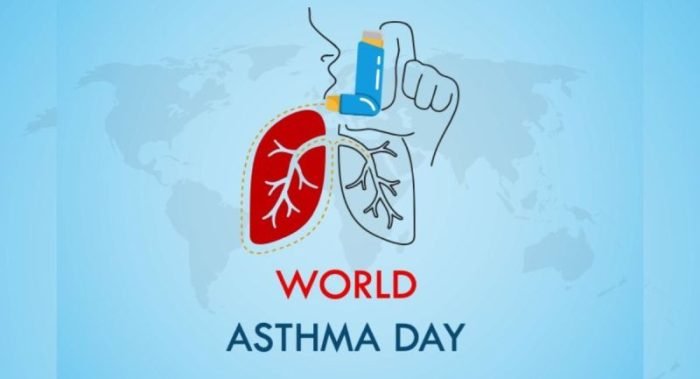As Nigeria joins the rest of the world to observe World Asthma Day 2025 today, health advocates are calling for urgent reforms in asthma treatment. The Amaka Chiwuike-Uba Foundation (ACUF) has warned that outdated asthma drugs and worsening air pollution are putting millions of lives at risk.
Asthma is a chronic lung disease that affects breathing. More than 300 million people around the world live with asthma, and over 250,000 die each year due to complications. In Nigeria, asthma is a common cause of emergency hospital visits, especially among children and young adults.
Nigeria still relies on unsafe asthma medications
Development economist and ACUF founder Prof Chiwuike Uba says most primary healthcare centres in Nigeria lack proper equipment, trained personnel, and effective asthma medicines. Many clinics still use oral salbutamol and corticosteroids, which are no longer recommended by the World Health Organization.
These oral drugs have been linked to side effects like tremors, irregular heartbeats, and a higher risk of asthma attacks. However, because they are cheaper and easier to find, they remain widely used in Nigeria.
Calls for an updated medicine list
Experts are urging the government to update Nigeria’s Essential Medicines List to remove old treatments and include modern inhaled medications. Inhaled corticosteroids and combination inhalers are now considered the best option for managing asthma safely and effectively.
ACUF is also calling on the government to include inhaled treatments in the National Health Insurance Authority coverage. This would make them more affordable for the general population.
Air pollution adds to the burden
Air pollution in Nigerian cities is making asthma worse. Cities like Lagos, Port Harcourt, and Kano are among the most polluted in the world. Vehicle emissions, industrial smoke, and waste burning contribute to poor air quality.
As cities grow and air pollution increases, more people are expected to develop asthma. Current estimates suggest that between 5.1 and 14.7 percent of Nigerians have asthma. Without action, this number may continue to rise.
No national asthma guideline in place
Another major issue is the lack of a national guideline for asthma care. Without a clear and consistent framework, health workers often rely on old information. This leads to poor treatment, unnecessary suffering, and higher health risks.
A national asthma guideline would help standardize care across the country. It would give health workers the tools they need to treat patients using up-to-date methods.
Global report confirms high asthma rates
The Global Asthma Report 2024 shows that asthma is a growing problem in Nigeria. One study found that 10.2 percent of adolescents and adults have asthma. The report recommends using local data to develop better treatment strategies.
In Nigeria, asthma drugs are not subsidized. This forces many patients to pay out of pocket, often at great personal cost. Because of the high prices, many people skip treatment or turn to unsafe alternatives.
A push for better care and access
The Amaka Chiwuike-Uba Foundation is working to improve asthma care by advocating for better policies, wider access to modern inhalers, and more support for patients.
This year’s World Asthma Day theme is make inhaled treatments accessible for all. It highlights the need for early diagnosis, proper treatment, and equal access to asthma medications.
Uba says that to reduce asthma-related deaths and improve care, the government must act quickly. This includes improving primary healthcare centres, updating medicine policies, and training health workers on current best practices.
What Nigeria must do next
Health experts suggest a list of urgent actions Nigeria should take to improve asthma management:
Update the Essential Medicines List
Remove outdated oral drugs and replace them with inhaled medications recommended by international guidelines
Expand health insurance coverage
Include inhaled asthma medicines in the National Health Insurance Authority scheme so more people can afford them
Create a national asthma guideline
Develop a unified, evidence-based document that health workers across Nigeria can use
Train healthcare workers
Offer updated training on asthma diagnosis, medication use, and emergency response
Improve air quality
Introduce stronger environmental laws and policies to reduce pollution in major cities
With the right reforms, Nigeria can reduce asthma-related deaths, ease the burden on families, and improve the quality of life for millions of people.







